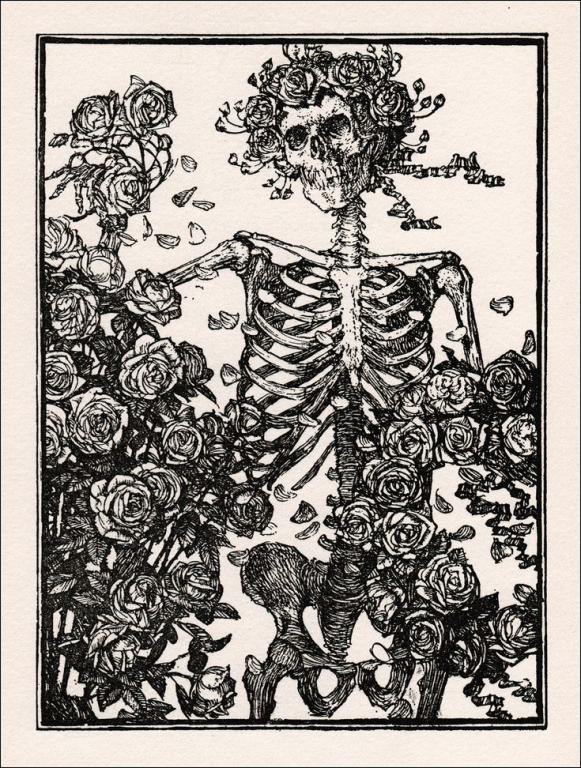
of Omar Khayyam
(Edmund Joseph Sullivan)
A Book of Verses underneath the Bough,
A Jug of Wine, a Loaf of Bread – and Thou
Beside me singing in the Wilderness –
Oh, Wilderness were Paradise enow!
It was today, the 14th of June in 1883 that Edward FitzGerald died.
Today he is best known for his rendition of Omar Khayyam’s Rubaiyat.
In my youth I was very much taken with what I only later learned was Edward FitzGerald’s controversial loose translation. Later, when I was working at Holmes’ Book Company in downtown Oakland (a great store of beloved memory) for months my lunch breaks were taken up with reading various translations side by side of the quatrains that FitzGerald had first interpreted.
The article in the Encyclopaedia Iranica tells us FitzGerald’s Rubaiyat “is by far the most famous translation ever made from Persian verse into English, and it had a considerable influence on the development of late Victorian and Edwardian British poetry as well as the awakening of a much wider interest, in English speaking countries and Europe, in Persian literature than had previously been the case.”
As a child FitzGerald decided to learn Persian. And was able to produce a version of Hafez at sixteen. Later he was tutored in the language by his friend Edward Byles Cowell. And it was Cowell who gifted him with a copy of Omar Khayyam’s quatrains.
As regards the authenticity of the verses, the Encyclopaedia cites the detailed analysis of Edward Heron-Allen that “Forty-nine [of FitzGerald’s quatrains] are faithful and beautiful paraphrases of single quatrains to be found in the Ouseley (i.e., Bodleian) or Calcutta MSS., or both. Forty-four are traceable to more than one quatraiņ’ while others have their origin in verses by Ḥāfeẓ (two quatrains) and ʿAṭṭār (two quatrains). Three (dropped after the second edition) appear to be FitzGerald’s original work and to have no source in Persian (Heron-Allen, pp. xi-xii).”
The article suggests that Fitzgerald’s goal was a readable version for a Victorian audience. And in this project he was wildly successful. Fitzgerald’s Rubaiyat is one of the best selling books of poetry in the history of the English language. The article concludes “Easy though it is to fault his scholarship it seems, in the light of this achievement, somewhat churlish to do so.”
I know how important he was for me.
While FitzGerald’s version downplays the sometimes obvious mystical read through Sufism in favor of a more hedonistic and vaguely homoerotic quality, together with a generally skeptical world view, I found it compelling. Especially as I spend those lunch times reading the quatrains in tandem with more recent versions.
A sad side effect for me was that I was poor as a church mouse and my lunch meals at the time were cheap cheese spread with crackers. And today I can’t pick up a copy of the Rubaiyat without smelling cheese spread and crackers.
But a small price.
I’m sure those early readings helped prepare me to respond when I finally found the traditions that would open my heart.
And so I remain forever grateful…













